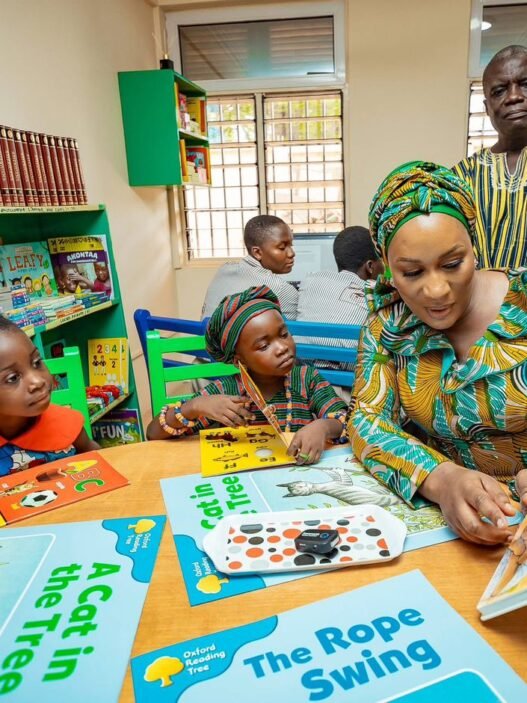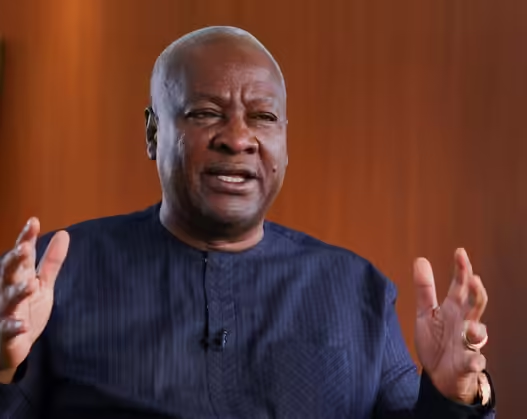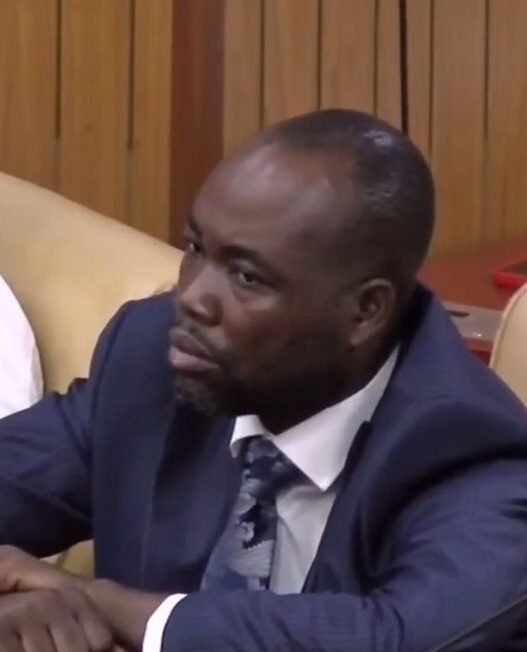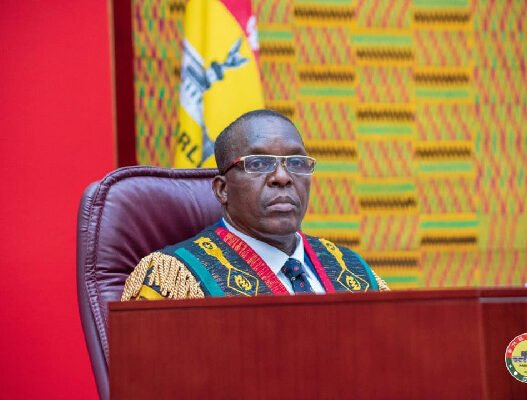The Office of the President has responded to circulating reports that President Nana Addo Dankwa Akufo-Addo granted clemency to nine convicted individuals, including high-profile figures like Ato Essien and Philip Assibit. The Director of Communications, Eugene Arhin, issued a statement on January 6, 2025, categorically denying the claims, urging the public to rely on official communications for accurate information.
Presidency Denies Granting Pardons
The statement reads:
“We wish to categorically state that these assertions are inaccurate, and no pardon has been granted by President Akufo-Addo. The public is kindly urged to disregard any contrary information and rely on official communications from the Office of the President.”
This denial has sparked questions, especially in light of previous clemency exercises conducted during President Akufo-Addo’s tenure, some of which drew significant public attention and criticism.
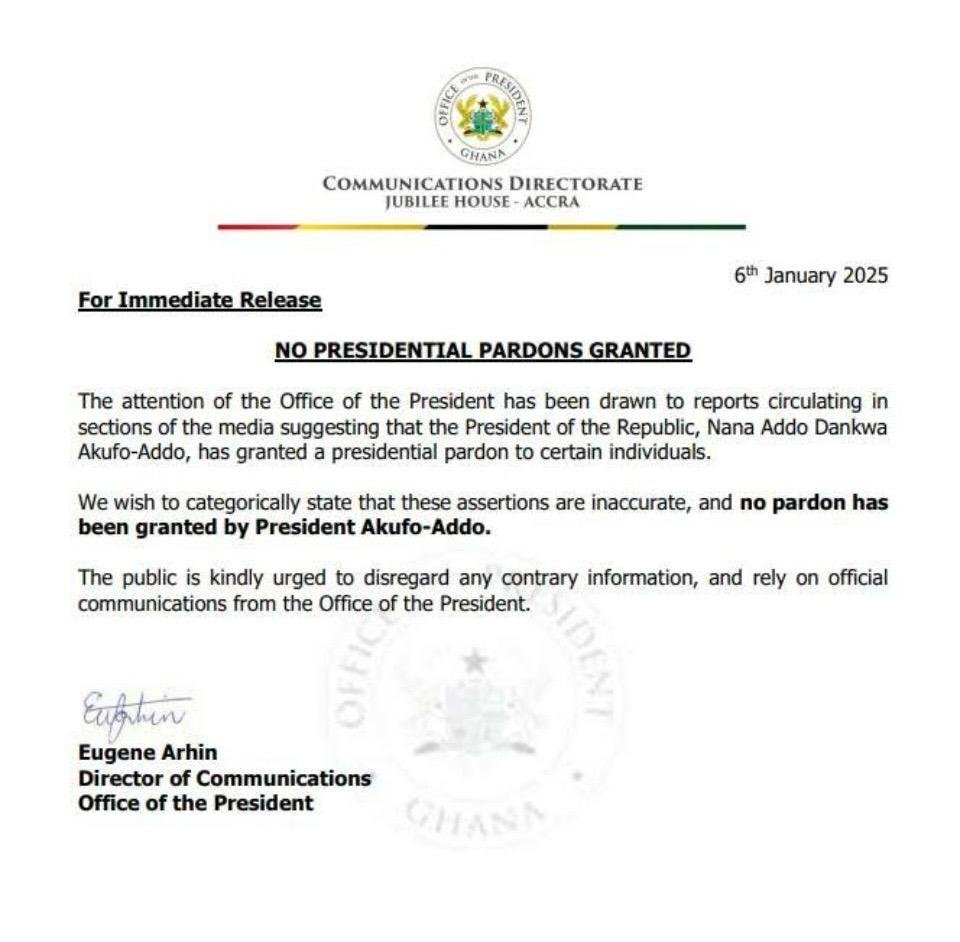
The Clemency Controversy
Earlier reports had suggested that the President had exercised his constitutional prerogative of mercy to pardon nine individuals. Among the names highlighted were:
- Ato Essien: The former CEO of Capital Bank, convicted for financial crimes involving the embezzlement of GH¢620 million in liquidity support, was reportedly pardoned on health grounds.
- Philip Assibit: Convicted in 2018 for financial loss to the state during the GYEEDA scandal, Assibit had served six years of his 12-year sentence.
These reports fueled public debate about the implications of granting clemency to high-profile offenders, particularly those convicted of financial and economic crimes.
Balancing Mercy and Accountability
While clemency is a constitutional right granted to the President under Article 72 of the 1992 Constitution, its exercise often raises critical questions:
- Justice vs. Mercy: Critics argue that granting clemency to individuals like Essien and Assibit undermines efforts to combat corruption and economic crimes.
- Deterrence: Reducing sentences for high-profile offenders risks emboldening others to commit similar offenses.
- Perception of Inequality: Public concerns center on the perception that influential individuals are treated more leniently than ordinary citizens.
Clemency Decisions in Context
If confirmed, the clemency for Ato Essien and Philip Assibit would be consistent with previous instances where health challenges and humanitarian considerations informed the President’s decisions. However, the denial from the presidency highlights the need for transparency in such matters to avoid misinformation and speculation.
Public Reactions
The mixed reactions from civil society groups, political commentators, and the general public reflect broader concerns about governance and the rule of law:
- Criticism: Many have decried the perceived leniency towards financial criminals, arguing it could weaken public trust in Ghana’s legal system.
- Support: Others contend that clemency, when exercised judiciously, fosters reconciliation and addresses humanitarian concerns.
Conclusion: A Call for Transparency
The conflicting narratives surrounding clemency underscore the importance of clear communication from the government. As debates continue, this episode serves as a reminder of the delicate balance between justice, mercy, and governance in Ghana’s political landscape.
















